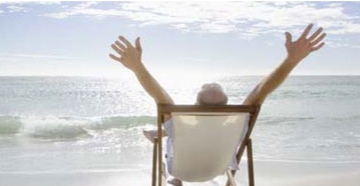
Travel for pleasure first became fashionable during the 17th century with the Grand Tour, but it wasn’t until the industrial revolution that the tourism industry began to grow. In 1758 the first “official” travel company – Cox & Kings – was formed and, whilst at this point tourism was still an activity for the wealthy, it was just under 100 years later that the pioneer of modern mass market tourism, Thomas Cook, founded his company in 1841 with the organisation of the first package tour in history.
With the advent of relatively low-cost, rapid international travel the British tourism industry changed from primarily domestic to generally international. In fact, the first “modern” package holiday can be pinned down to May 20th 1950 when the newly formed Horizon company offered a two-week holiday to Corsica that included meals and wine-tasting.
It is possible to go into an incredible amount of detail on the history and development of tourism in the UK (who, unsurprisingly, were global pioneers of the idea) and the governmental, social and industrial reforms that, over the course of 200 years, allowed the working classes the longer holidays and higher wages required to turn holidaying from a rich mans diversion into a truly mass market affair but, whilst interesting, that would not necessarily be helpful for the purposes of this article.
Of intrinsic relevance is only the fact that tourism per se and the idea of annual holidays have been ingrained into the British consciousness to the point where there is no need for an operator to sell the idea of tourism. It is, at this point in history, relatively simple to travel anywhere, at any time, with any niche market in mind for (in general) an affordable amount.
The World Tourism Organisation (UNWTO) has forecasted that the international tourism will continue to grow by an estimated average annual rate of 4%. They also say that with the advent of e-commerce, tourism related products have become amongst the most traded items on the internet.
So, in this climate – a healthy industry and a product that tends to sell itself – what are tour operators and travel agents doing to increase their share of business? The answer, in the main, appears to be nothing.
The advent of truly budget travel in the late 90s still seems to be having an inordinate impact, with many travel firms emphasising the cheap flights available to virtually any destination whilst tending to ignore the other aspects of holidaying – accommodation in particular. This, in turn, means that a seemingly large number of promotional campaigns concentrate on flight prices, with only a passing reference to destination.
Meanwhile the online market is dominated by the hugely popular lastminute.com and expedia.com; firms which specialise in sourcing cheap or (as the name suggests…) last minute deals, meaning that any potential competitors would need an enormous budget and several years to bring themselves on a par with these heavyweights.
Niche market agents (wine tasting tour operators for example) are mostly found online also, with the likes of arblasterandclarke.com operating high-end wine tours or adventuresportsholidays.com catering to the adrenalin junkie. Here again established and respected firms hold sway and, given the nature of their business – vending to a niche market – they make little or no attempt to promote outside this target group. Indeed, there’s precious little attempt at promotion at all given that the majority of their clients will know exactly what they want and, in all probability, where to get it.
All in all, the current market seems to be lacking a great deal of promotion; firms are relying on their existing customer base, budget flights and the generally self-selling nature of the holiday to get by.
Of course, there is the odd promotional campaign that breaks the mould – Visit London (the capital’s official representation in the tourist industry) covered Trafalgar Square in 2,000 square feet of turf and named it “London’s Village Green” in a bid to highlight the city’s histoRy as a collection of villages and it’s current status as one of the greenest capitals in the world.
It would be fair to point out that this activity was actually undertaken by the representatives of a destination rather than a travel company and so doesn’t necessarily fall into the bracket discussed here. However, Lastminute.com’s Roadshow campaign certainly does. Having an agency to run an experiential campaign for them Lastminute engaged in a tour of major UK cities (and airports) with a branded bus and the aim of educating consumers on the range of choices available on the website in general and the promotion of beach holidays specifically.
Using
